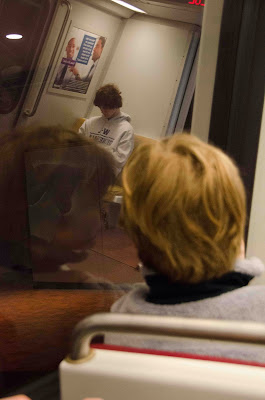Here's a photo tip I've picked up in the last couple of years. Digital cameras can't do everything, and they need filters, too. When I used film cameras years ago, I became very familiar with different types of filters and how they could help my photography. With digital cameras I forgot about filters, just figured that the computer inside the camera and my processing programs (Adobe Lightroom and Photoshop, Photomatix, Perfectly Clear, etc.) could digitally add any filtered effects to the captured images. Not true.
I found this out the hard way on my first trip to Nepal. When taking photos of the mountains, I noticed the skyline was extremely washed out, overexposed. I hunted the shops in Thamel to find a good polarizing filter with no luck. Once I returned home, I immediately did my research and found a good polarizing filter (they are not all the same), and noticed an immediate difference in my photos. The original mountain photos were washed out. Without the captured data, there was no bringing back the detail of the mountains. The polarizing filter definitely helped me to capture more details on my second trip to Nepal.
I now have a new favorite lens (AF-S NIKKOR 18-200 mm 1:3.5 - 5.6 GII ED), and a new polarizing filter (Promaster Digital HGX CPL Filter - 72mm). I saved up for this filter, but have also used Tiffen circular polarizer filters with good success (much less expensive).
From Amazon.com: "The PROMASTER Digital HGX Circular Polarizing filter allows you to remove unwanted reflections from non-metallic surfaces such as water, glass etc. It also will enable colors to become more saturated and appear clearer, with better contrast." When the filter is turned, I get different levels of the filtering effect. Posted here are examples of photos I took this week on the metro, all with the same filter.
I love photography. I can't stop taking photos, and won't stop learning as much as I can in the process. :)
 |
| Can view full reflection in the window. |
 |
| A small twist of my polarizing filter, and the reflection begins to disappear, I can see through the window. |
I have some of my father's old filters from the 1980s, and they also work well on my newer lenses! I'm now looking at different graduated neutral density filters, after hearing a National Geographic photographer talk about he uses them with his work. I've always used UV filters to protect the exposed lens glass. Every photographer should at least be carrying one of these in their bags and using them on their lenses.

















